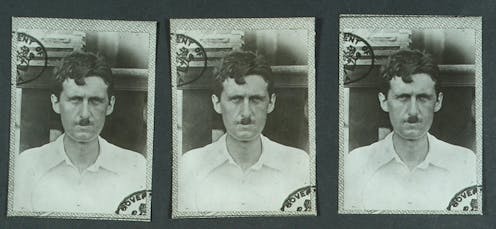George Orwell is everywhere, but Nineteen Eighty-Four is not a reliable guide to contemporary politics
- Written by Chris Fleming, Associate Professor in the School of Humanities and Communication Arts, Western Sydney University

In January 2017, Donald Trump’s advisor Kellyanne Conway was quizzed on White House press secretary Sean Spicer’s false claims about the number of attendees at the president’s inauguration. When pressed on why Spicer would “utter a provable falsehood”, Conway said that Spicer was offering “alternative facts[1]”.
Her wording was widely characterised as “Orwellian”. Everywhere from Slate to the New York Times to USA Today, journalists were linking the new administration to George Orwell’s dystopian fiction. Less than a week after Conway’s claim, the sales of Orwell’s Nineteen Eighty-Four had gone up an estimated 9,500%[2].
In a serious case of “I know you are but what am I?”, Republicans have gotten in on the act, accusing the left of being the fulfilment of Orwell’s dark prophesy. In April this year, for instance, Donald Trump Jr. tweeted: “Historically, was there ever a despotic regime that didn’t have the equivalent of a Ministry of Truth?”
Almost everyone in every quarter sees Orwellian undertones in the manoeuvrings of their opponents. Like Elvis, Orwell has been spotted everywhere.
But we should be suspicious, not simply because the designation is thrown around so freely and is plastic enough to fit almost all political phenomena indifferently, but because one of the legacies of Nineteen Eighty-Four itself is to leave us with a more finely tuned sense of what such propaganda looks like. Orwellian strategies are harder to propagate because of, well, the overwhelming success of Nineteen Eighty-Four.
The Orwellian paradox
Some historical nuance is required. Orwell was responding to mid-twentieth century political regimes – Stalinist Russia, in particular. He was ringing the alarm bells on a new phenomenon: state control had moved beyond speech to thought and perception. Winston Smith, the protagonist of Nineteen Eighty-Four, reflects:
The party told you to reject the evidence of your eyes and ears. It was their final, most essential command.















